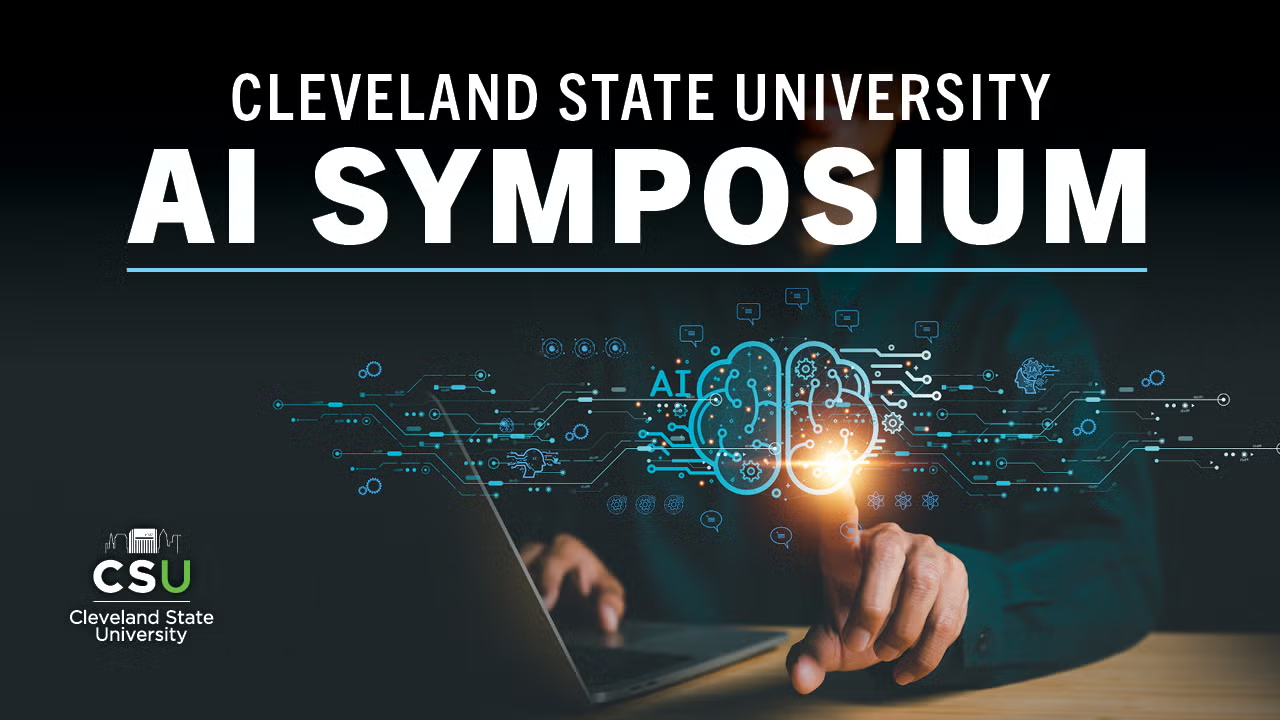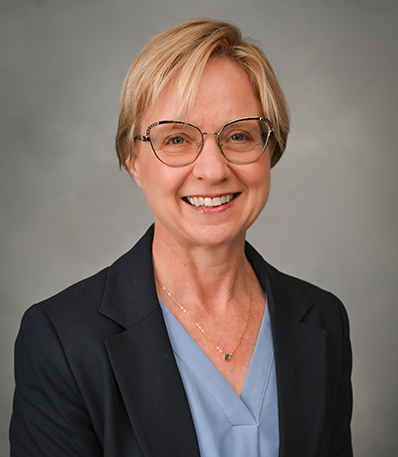AI at CSU
Contact Information
To add your content to this site
please contact:
Chris Rennison
c.rennison@csuohio.edu
Office of Instructional Excellence
Cleveland State University
2121 Euclid Avenue
Cleveland, OH 44115-2214
Symposium

The 3rd Annual AI Symposium at
Cleveland State University
Friday, April 24, 2026
9:00am - 4:00pm
The Wolstein Center
About the Symposium
The Cleveland State University AI Symposium is a one-day event designed to bring together educators, researchers, students, and campus partners to explore how artificial intelligence is being integrated into teaching, learning, and professional practice. As AI continues to influence the way we learn, teach, and work, this symposium creates a space for frank discussion, practical demonstrations, and collaborative exploration.
We’ll look at how educational institutions are shifting from curiosity about AI to its intentional, meaningful adoption. All experience levels are welcome.
What to Expect
- Keynote Session: Hear from AI scholars on the latest advancements and their implications for education
- Panel Discussions: Engage with thought leaders as they discuss AI literacy, academic integrity, workforce readiness and responsible AI adoption
- Hands-On Experiences: Gain practical experience with AI tools and learn how they can be applied in classrooms and research settings
- Networking Opportunities: Connect with educators, students and AI professionals who are shaping the future of artificial intelligence in higher education and the workplace
Who Should Attend?
This symposium is open to faculty, administrators, students, researchers and professionals interested in the intersection of AI and education. Whether you're curious about AI’s potential or actively incorporating it into your work, there’s something for everyone.
Keynote

We are pleased to announce our lunchtime keynote speaker, Dr. Liza Long.
Liza Long is a self-described skeptical AI enthusiast and works as the Academic Technology Program Manager for the Idaho State Board of Education. She served as an Associate Professor of English and Liberal Arts program committee chair at the College of Western Idaho for more than 10 years, where she led an AI-informed redesign of first-year experience courses and curriculum. She is also a Ph.D. student in the English program at Idaho State University. Liza's research is at the intersection of open education and generative artificial intelligence in writing and literature instruction. Liza holds an MA in Classics from UCLA and an, Ed.D. in Organizational Leadership from Argosy University. She blogs about teaching and writing with AI at Artisanal Intelligence.
Dr. Long's keynote will be:
The AI-Powered Renaissance: Reclaiming the Universal Scholar
We've been here before. When the printing press arrived in 1450, universities didn't become obsolete; they became essential. AI is our printing press moment. We will explore how artificial intelligence gives higher education the opportunity to launch a new renaissance: one where students become polymaths again, research accelerates beyond imagination, and the barriers between disciplines dissolve. We stand at the threshold of an era where regional public universities can finally fulfill their founding promise. AI technologies can help us to democratize not just access to education, but access to tools that were elite privileges just years ago. But in this existential moment, we have to get this right. The future of higher education isn't about surviving AI. It's about using AI to rediscover what universities have always done best: expanding human potential and promoting human flourishing.
Partners and Sponsors
Office of Instructional Excellence
CSU TECH Hub
Would you like to present at this year's Symposium?
Please contact Chris Rennison at c.rennison@csuohio.edu who will share your ideas with the AI Symposium planning committee.
Register now to attend the Symposium!
Register using the form below and join us for a day of concrete ideas, honest conversations, and practical strategies.
Contact Information
To add your content to this site
please contact:
Chris Rennison
c.rennison@csuohio.edu
Office of Instructional Excellence
Cleveland State University
2121 Euclid Avenue
Cleveland, OH 44115-2214